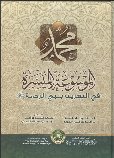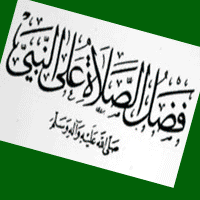يونيو 2010
As soon as he reached a location called Ash-Shaikhan, he paraded his army. He dismissed those whom he considered to be disabled or too young to stand the fight. Among them were ‘Abdullah bin ‘Umar bin Al-Khattab. Usama bin Zaid; Usaid bin Zaheer, Zaid bin Thabit, Zaid bin Arqam. ‘Araba bin Aws, ‘Amr bin Hazm, Abu Sa‘eed Al-Khudri, Zaid bin Haritha Al-Ansari, Sa‘d bin Habba and Al-Barâ’ bin ‘Azib, Sahih Al-Bukhari pointed out that he had shared in the fight that day.
As night fell upon them there, they performed both the sunset and the evening prayers and spent the night there as well. Fifty people were chosen to guard the camp and go round it. Muhammad bin Maslama Al-Ansari, the hero of the brigade of Ka‘b bin Al-Ashraf, was in charge of the guards. Whereas Dhakwan bin ‘Abd Qais undertook the responsibility of guarding the Prophet (Peace be upon him), in particular.
******
At the end of the night and just before it was daybreak, the Prophet (Peace be upon him) moved and when he got to Ash-Shawt he observed the dawn prayer. There he was close enough to the enemy that they could see one another. It was there that ‘Abdullah bin Ubai — the hypocrite — rebelled against the Muslims. One-third of the army withdrew with him — that is to say three hundred fighters.
With the remainder of fighters, the Messenger of Allâh (Peace be upon him) moved towards the enemy. After the rebellion and withdrawal of the hypocrites, the number of soldiers was reduced to seven hundred only.
TheMessenger of Allâh (Peace be upon him) mobilized his army. He arranged them into two rows to prepare them for fight. He selected fifty skillful archers that formed a squad and made them under the command of ‘Abdullah bin Jubair bin An-Nu‘man Al-Ansari Al-Awsi Al-Badri. He issued his orders to them to stay where they were — on a mountain(side) at the south bank of Qanat Al-Wadi (i.e. a canal of the valley), south east of Muslims camp at about one hundred and fifty metres from the Islamic army. Later on this mountain was called the Mountain of Archers.
The Messenger of Allâh (Peace be upon him) forbade the Muslims to start the fight without having an order from him. He, then, wore two armours — a front armour and a back one. He urged his Companions to fight and spurred them to show stamina and steadfastness at fight. He started to implant the spirit of boldness and bravery in them. To wage and inflame his Companions and in order to standfast in the fight, he took a sharp sword, held it in his hand and called out unto his Companions and said: “Who is ready to take this sword and give it its proper due?” Many a man set out to take it.
The idolaters applied the rows system in the mobilization of their army. The general leadership of the army was entrusted to Abu Sufyan Sakhr bin Harb, who would be in the centre-position of the army. Khalid bin Al-Waleed was on the right wing; whereas ‘Ikrima, the son of Abu Jahl was on the left. Safwan bin Omaiya was in charge of infantry men. The archers were under the command of ‘Abdullah bin Abi Rabi‘a.
A little time before the break out of the battle, Quraish made some endeavours to sow the seeds of discord and dispute among the Muslims. First, Abu Sufyan sent to the Helpers a message saying: “Leave us alone to fight our cousins and do not interfere. If you stand aside, we will not fight you; for fighting you is not a target of ours.” But that attempt proved to be fruitless. What could such a wicked scheme do to those whose Faith was as solid and firm as mountains?! The Helpers reply was undoubtedly disappointing and contrary to Abu Sufyan’s expectations.
Quraishi-women participated in the battle led by the wife of Abu Sufyan, Hind bint ‘Utbah. They wandered among the rows of the idolaters, tapped on tambourines, encouraged men to fight, inflamed the emotions of heroes, lancers, swordsmen and brave fighters. At one time they addressed the standard-bearers:
“O Bani ‘Abd Ad-Dar!
O home defenders,
Strike with your sharp swords …”
And at another time they would wage people’s zeal by singing:
“If you fight (bravely), we will embrace
and unfold mats to welcome you.
The two parties approached and grew very close to each another. The phases of fight started. The first combatant was the standard-bearer, Talha bin Abi Talha Al-‘Abdari, who was the most distinguished idolater. He was one of the bravest men of Quraish fighters. Muslims nicknamed him ‘the ram of the battalion.’ He came forth riding a camel and challenged the Muslims to a single combat. People refrained from fighting him due to his bravery; but Az-Zubair bin Al-‘Awwam advanced for the fight.






.jpg)

